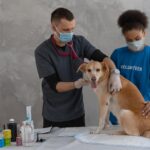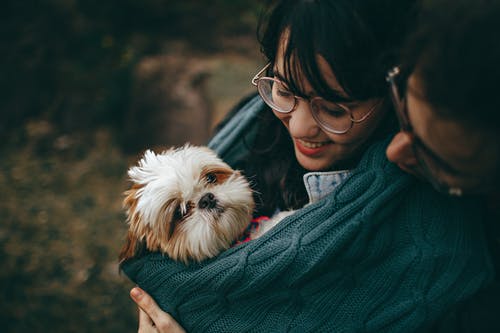Kennel-cough is the canine infectious respiratory disease complex specific dog disease that mainly affects puppies and young dogs, but it can affect dogs of any age. Bordetella is the bacteria responsible for the condition, and it is spread by direct contact with diseased animals or through the fomites.
Coughing and other upper respiratory signs often indicate the kennel cough disease that affects dogs. Although it can cause lots of pain and, in rare instances, severe results, it typically responds well to treatment from a veterinarian.
While no one vaccination will ensure your dog is protected from all forms of cough in dogs, vaccines can be found for specific viruses and bacterium strains that cause the sickness. While the illness isn’t completely cured, current vaccinations can help considerably lower your dog’s chance of contracting the disease.
Taking Care of a Dog with Kennel Cough
Kennel cough is rarely life-threatening, no matter how irritating this can get. If your dog has been diagnosed with this cough and you want to take every step to make him get as comfortable as possible. Here are some helpful kennel cough treatment tips for your dog.
Give Your Dog Honey
Honey contains a variety of flavonoids and antioxidants, making it suitable for dogs with kennel cough. Giving it to your pet may make him feel better and ease their problems.
Three teaspoons of honey daily are suggested for large dogs, with two tablespoons for medium dogs. If your dog isn’t keen to eat honey, consider pairing the honey and one of their favorite snacks.
Let Your Dog Rest
Getting enough sleep is a significant factor in the effectiveness of treatment options for kennel cough. Your dog’s body will have greater chances of fighting off the infection and recovering if it gets sufficient sleep.
Set your dog up in a separate room away from other pets and children. He won’t be disturbed while trying to rest in this way.
Keep Your Dog Hydrated
Your dog must drink plenty of water when he suffers from kennel cough. It can help him get rid of the infection quicker by flushing out the poisons in his body. Add some chicken broth to make the water your dog drinks tastier. Consult a veterinarian for Internal Medicine Specialist Care.
Avoid Exposing Your Dog to Smoke and Other Irritants
You should keep your pet household member from smoking and other allergens while recovering from kennel cough. These substances could aggravate your dog’s cough if they get into his airways. If you smoke cigarettes, keep them away from your dog.
If you’re cleaning your home, put your dog in a separate room until you’re done. Cleansing products for your house typically contain harsh chemicals that can irritate your dog’s cough.
Give Your Dog a Cough Suppressant
A cough suppressant, such as Robitussin, can benefit dogs suffering from kennel cough. This drug should only be administered with the approval of a veterinarian. A veterinarian will determine the dog’s Robitussin dosage. Click here for additional information.
Vaccinations
Immunization is the best way to stop kennel cough, particularly in socialized dogs or in participating in places or activities with numerous other dogs. Several infectious tracheobronchitis medications, such as Bordetella and a few viral diseases, have available vaccines. Make sure your pet is always up to date with dog vaccinations.

 Grooming Techniques for a Parasite-Free Pet
Grooming Techniques for a Parasite-Free Pet  Recognizing Vision Loss in Dogs: Signs to Watch Out for
Recognizing Vision Loss in Dogs: Signs to Watch Out for  Preparing Your Pet for Their Yearly Checkup
Preparing Your Pet for Their Yearly Checkup  What Should You Be Aware of Intestinal Parasites?
What Should You Be Aware of Intestinal Parasites?  Why Vaccines are a Must-Have for Your Pet’s Safety
Why Vaccines are a Must-Have for Your Pet’s Safety  4 Techniques for Reducing Kennel Anxiety When Boarding Pets
4 Techniques for Reducing Kennel Anxiety When Boarding Pets  Veterinary Internal Medicine: A Key to Pet Wellness
Veterinary Internal Medicine: A Key to Pet Wellness  Conditions Vaccines for Pets Prevent
Conditions Vaccines for Pets Prevent 